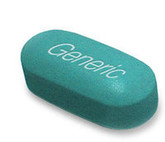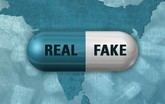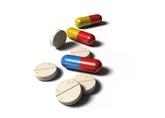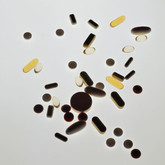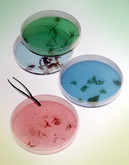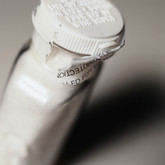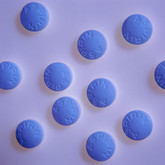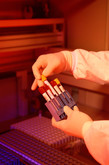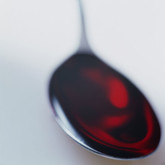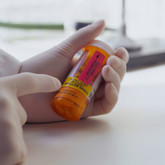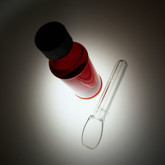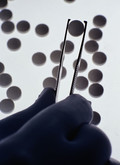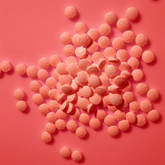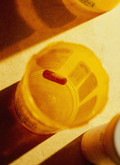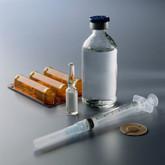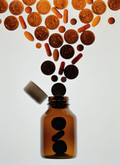Pharma News
Perrigo expands global ambitions with Elan buy
US-based generics maker Perrigo Company (Perrigo) announced on 29 July 2013 that it would acquire Irish biotechnology company Elan Corporation (Elan) for US$8.6 billion.
Pfizer prepares to split off generics business
Pfizer, the world’s largest research-based pharmaceutical company, has announced plans to split off its generics drug business into a separate commercial operation. News of the plans came as the company reported its second quarter 2013 results at the end of July.
Aspen makes deals with Merck and GSK
Generics manufacturer Aspen Pharmacare Holdings (Aspen) is expanding its brand-name business, first signing a deal with Pharma giant Merck, and then offering to buy two brand-name heart medications from GlaxoSmithKline (GSK).
CFR pharma expands global ambitions with Adcock bid
Chile-based CFR Pharmaceuticals (CFR) has plans to become a global drugmaker. In its latest efforts it has made a US$1.3 billion cash-and-share offer for South Africa’s second-largest generics drugmaker Adcock Ingram (Adcock).
UK plans to cut drug prices by up to 20%
The UK’s Department of Health (DoH) has launched a consultation to strengthen the statutory pharmaceutical pricing scheme, which covers the prices the National Health Service (NHS) pays for brand-name drugs not covered by the voluntary Pharmaceutical Price Regulation Scheme (PPRS). The consultation is seeking views on a price cut on drug prices of between 10% and 20% to ensure the NHS continues to get good value for money.
Viagra generics hit the market in Europe
The patent on Pfizer’s blockbuster erectile dysfunction drug Viagra (sildenafil) expired on 21 June 2013 in the UK, along with several other European countries.
Nigeria needs to combat fake drugs and ageing facilities
Nigeria has ageing drug-manufacturing facilities and a problem with imports of fake drugs, according to Mr Olakunle Ekundayo, Group Managing Director, Drugfield Pharmaceuticals.
Sun Pharma looking to buy Sweden’s Meda
India-based Sun Pharmaceutical Industries (Sun Pharma) is reportedly in talks to acquire Swedish drugmaker Meda for US$5–6 billion.
Actavis makes definitive agreement with Warner Chilcott
US generic drugmaker Actavis (formerly Watson) and Irish drugmaker Warner Chilcott announced on 20 May 2013 that the two companies had entered into a definitive agreement under which Actavis will acquire Warner Chilcott in a stock-for-stock transaction valued at approximately US$8.5 billion.
Actavis in discussions to buy Warner Chilcott
US generics maker Actavis (formerly Watson) confirmed on 14 May 2013 that the company had entered into discussions to buy Irish drugmaker Warner Chilcott.
Valeant deal to acquire Actavis on hold
Drugmaker Valeant Pharmaceuticals International (Valeant) was in talks to acquire generics manufacturer Actavis for more than US$13 billion, in what would rank as one of the biggest healthcare deals this year. However, reports are that the deal is now on hold.
UK accuses GSK of delaying generics
The UK’s competition watchdog is accusing GlaxoSmithKline (GSK) of delaying the entry of generics to its antidepressant drug Seroxat (paroxetine) by paying rival companies to stay off the market.
Generics drugmakers should be held responsible for injuries
In the long saga of generics pre-emption, The New York Times is adding its opinion to the argument of whether generics makers are liable for injuries caused by their products. The newspaper believes that ‘manufacturers should bear responsibility for making sure their drugs are safe and effective’ and is urging US Congress to amend laws to allow patients to sue generics manufacturers.
Greece and Syria facing severe drug shortages
Greece and Syria are both facing severe shortages in essential medicines, but for very different reasons.
Drugmakers accused of stopping shipments to Greece
Greece is facing a severe drug shortage in more than 200 drugs. The worrying situation is being blamed on drugmakers that have stopped shipping their products to the country due to debts or fear of parallel trade.
Drug shortages linked to quality control costs
Lack of reward for manufacturing quality is forcing manufacturers of sterile injectable generics to reduce investments into quality system and is leading to drug shortages, according to FDA officials [1].
Sun Pharma ends attempt to gain full control of Taro
Sun Pharmaceutical Industries (Sun Pharma) announced on 8 February 2013 that it had given up on its effort to buy the remaining stock of Taro Pharmaceutical Industries (Taro) for about US$685 million after Taro shareholders held out for a higher price.
EC accuses J&J and Novartis of delaying generic fentanyl
On 31 January 2013 the European Commission (EC) sent a statement of objections, to US-based Johnson & Johnson (J&J) and Switzerland-based Novartis accusing them of delayed entry of a generic painkiller.
Generic Doxil approval may help alleviate drug shortages
FDA announced on 4 February 2013 that the agency had approved the first generic version of the cancer drug Doxil (doxorubicin hydrochloride liposome injection).
Top 10 most read GaBI Online articles in 2012
2012 was a busy year with lots of developments in biosimilars from regulatory guidelines to comparability issues. Biosimilars remain as the hot topic of the year for GaBI Online.
Brand-name drugmaker can be sued for harm caused by generic drug
On 4 January 2013 the Alabama Supreme Court ruled that Pfizer can be sued for failing to warn about a drug’s risks by a patient who claimed he was injured by a generic version of its gastric reflux medicine Reglan (metoclopramide).
Teva makes South Korean joint venture agreement
Teva Pharmaceutical Industries (Teva) announced on 16 December 2012 that it had made an agreement with Handok Pharmaceuticals (Handok) to establish a business venture in South Korea.
Teva cost-cutting and re-organization
Teva Pharmaceutical Industries’ (Teva’s) new Chief Executive vowed to reshape the drugmaker and reduce annual costs by up to US$2 billion over the next five years, making it into ‘the most indispensable medicines company in the world’.
Eli Lilly and Strides Arcolab in generics deal
Pharma giant Eli Lilly and India-based generics manufacturer Strides Arcolab announced on 5 December 2012 a collaboration to market the latter’s generic cancer drugs in emerging markets.
Sanofi to acquire Colombian generics maker
Healthcare major Sanofi announced on 2 October 2012 that it has signed an agreement to acquire Colombian generics manufacturer Laboratorios Genfar (Genfar), making Sanofi a market leader in Colombia and expand its portfolio of affordable pharmaceuticals in Latin America.
GPhA drug shortages plan gets FTC approval
On 8 August 2012 the US Federal Trade Commission (FTC) issued a positive advisory opinion to the Generic Pharmaceutical Association (GPhA) approving its Accelerated Recovery Initiative (ARI), which hopes to address drug shortage issues, after the FTC found the ARI will not be anticompetitive as sensitive information will be protected.
Fresenius cashes in on drug shortages
German healthcare conglomerate Fresenius has posted substantial growth across all regions and product areas during the first half of 2012 for its US business Fresenius Kabi. The growth has been largely attributed to rivals’ problems with supplying generics on the drug shortages list in the US.
Generics market set to increase in Japan
Japan has not been an easy place for drugmakers to do business. However, with government initiatives being introduced to increase generics use and taking into account the fact that Japan is currently the world’s second largest pharmaceutical market, it is perhaps not surprising that a new partnership is optimistic about the opportunities.
Sun Pharma finally gains full control of Taro
Sun Pharmaceutical Industries (Sun Pharma) and Taro Pharmaceutical Industries (Taro) announced on 13 August 2012 that they have entered into a merger agreement together. India-based Sun Pharma has agreed to pay out an additional US$600 million in order to finally gain full control of Israel-based Taro.
Fuji Pharma acquires OLIC Thailand
Fuji Pharma Co Ltd announced on 3 August 2012 that it has entered into an agreement to acquire the shares of OLIC (Thailand) Ltd, the largest pharmaceutical contract manufacturer in Thailand.
Generics makers Sun and Stada considering deal
Rumours are that Indian-based generics manufacturer Sun Pharma and Germany’s generics maker Stada Arzneimittel (Stada) may be looking at a deal in the near future, although both sides deny or refuse to comment on the matter.
Political battle over US health care continues
It was not the end of the story when the Affordable Care Act was passed in 2010. Its implementation is being fought every inch of the way; the Republican Party is split even though voter polls say 70% would scrap the whole Act or at least its central plank.
Drug shortages are persisting
The media are reporting continuing problems on drug shortages, and indeed a worsening situation around the world. Cancer drugs seem to be the most affected.
APPG reports on drug shortages and MHRA bans unlicensed stock trading
On 14 May 2012, the All-Party Pharmacy Group (APPG) published the results of its inquiry into drug shortages in the UK. In response to this the Medicines and Healthcare products Regulatory Agency (MHRA) has decided to ban unlicensed stock trading by pharmacists.
IMS Health enlisted as information provider for drug shortages
The Generic Pharmaceutical Association (GPhA) announced on 19 April 2012 that it had selected IMS Health (IMS) to serve as the Independent Third Party in the Accelerated Recovery Initiative (ARI), providing information on generic drug shortages to FDA.
Also noted on pharma: 11 May 2012
UK government considers carrying out survey on drug shortages
The UK Department of Health (DoH) is considering a one-off survey of community pharmacies in England to assess the impact of drug shortages, Health Minister Simon Burns has confirmed. The move has followed requests from Ministers of Parliament (MPs) to carry out such a survey.
MP Irranca-Davies said, ‘in the meantime, I urge pharmacists and GPs to write to their MPs and demand that they lobby the health minister to carry out this research.’
The problem is far from being resolved, a Chemist+Druggist’s 2011 Stock Survey of pharmacies in the UK found that more than 140 pharmacists had seen a patient’s health suffer because of supply problems.
Related articles
UK drug shortages are far from being solved
UK drug shortages continue to affect pharmacists and patients
Members of parliament to hold inquiry into UK drug shortages
Source: Chemist+Druggist
FDA says efforts to prevent drug shortages are working
FDA Commissioner Ms Margaret Hamburg has reported that the FDA’s office of drug shortages has made progress in preventing drug shortages and working with industry to provide advanced warning when the agency is unable to prevent a shortage. In a posting on the agency’s FDA Voice Blog on 3 May 2012, Ms Hamburg said that she was ‘both amazed and delighted to see the progress that’s been made’.
Amgen enters biosimilars deal with PRA
Clinical Research Organisation (CRO) PRA announced on 26 April 2012 that it had entered into an agreement with US biotechnology giant Amgen as the sole provider of CRO services for ‘a series of phase III studies to develop several biosimilar drugs on a worldwide basis’.
CMS rules add to US drug shortages
Results of a survey carried out by the Institute for Safe Medication Practices (ISMP) and published on 22 March 2012 point to the fact that ‘too strict’ rules from the US Centers for Medicare & Medicaid Services (CMS) have led to waste of medications already in short supply.
Also noted on pharma: 13 April 2012
Drug shortages increase again in 2011
Despite efforts by FDA the number of drugs in short supply has increased again in 2011, according to data from the University of Utah, USA. Levels are more than 4.5 times higher than in 2004, when 58 drugs were reported to be in short supply, and have reached a new record high of 267 drugs experiencing shortages.
Related article
Record high drug shortages in the US
Source: The Washington Post
Also noted on pharma: 6 April 2012
MPs concerned over medicines shortages in UK
Nineteen UK Ministers of Parliament (MP) have now signed a Parliamentary motion demanding that the government holds ‘urgent discussions’ on the selling of UK medicines abroad, which according to many is only serving to exacerbate the current drug shortage situation in the UK.
Source: Chemist & Druggist
Canada drug shortages
Sandoz, the generics unit of pharma giant Novartis, is at the centre of Canadian drug shortages, however, the company is assuring Canadians that it will not raise prices of drugs sourced from overseas.
Top 10 most read GaBI Online articles in 2011
2011 was a busy year and biosimilars was the hot topic of the year for GaBI Online.
GaBI launches GaBI Journal
- A new information source for generics and biosimilars -
Canada’s generics and brand-name pharma come together to tackle drug shortages
Canada’s Research-Based Pharmaceutical Companies (Rx&D) and the Canadian Generic Pharmaceutical Association (CGPA) announced on 12 March 2012 their commitment and financial support in responding urgently to prescription drug shortages.
Greece drug shortages
A severe drug shortage is threatening to undermine the health and welfare of Greek citizens as prescription drugs and even basic over-the-counter medicines are in increasingly short supply. Even finding common drugs such as Aspirin has become a major problem in Greece.
Score lines won’t delay generics
In an attempt to delay generics competition, Irish pharma company Warner Chilcott had added a second line or score to its Doryx (doxycycline hyclate) tablet. On 8 February 2012, FDA however denied the company’s citizen petition demanding that generic versions should also have the two score lines.
UK drug shortages are far from being solved
Despite attempts to solve problems with shortages of brand-name medicines in the UK, the issue is taking up more of pharmacists’ time, is far from being solved and may be getting worse according to an online stock survey carried out by pharmacists organisation Chemist+Druggist.
Drug shortage woes continue in the UK
Despite attempts to solve problems with shortages of brand-name medicines in the UK, the issue is far from beings resolved. The latest news is that the UK’s wholesalers have called for a ‘third-party monitoring and survey service’ to help tackle medicines shortages, while the Association of the British Pharmaceutical Industry (ABPI) is calling for sanctions on pharmacists that act as wholesalers.
Shortages of ADHD drugs expected during 2012
Drugs used to treat attention deficit hyperactivity disorder (ADHD) are in such short supply that FDA has reported that it receives hundreds of complaints from patients unable to fill their prescriptions.
UK drug shortages continue to affect pharmacists and patients
Shortages of brand-name medicines are as much of a problem in 2011 as they were in 2010, according to a survey by the Pharmaceutical Services Negotiating Committee (PSNC).
Hospira’s manufacturing troubles may add to drug shortages
Injectable generics specialist, Hospira, is under scrutiny again regarding drug shortages caused by its continuing lack of compliance with FDA requirements. In fact, one analyst from The Wall Street believes that the company has production problems that require long-term attention and that could lead to it receiving a consent decree from FDA.
Biosimilars and cancer drug shortages in Europe
With all the talk about drug shortages in the US it might be easy to forget the rest of the world, but it seems that drug shortages are also hitting European countries and are affecting not just generics, but also biosimilars.
Members of parliament to hold inquiry into UK drug shortages
On 21 November 2011, a group of UK members of parliament (MPs) announced that they will hold a full-scale inquiry into the continuing problem of drug shortages within the National Health Service (NHS).
Some relief from drug shortages in the US
There finally appears to be some light at the end of the tunnel, with one of the main victims of shortages—the sterile injectable drug propofol—finally being declared no longer in short supply by FDA.
Obama’s fresh attempts to ease drugs shortages in the US
Action by the President
President Barack Obama signed an executive order 31 October 2011 to address an escalating shortage of life-saving medicines, his newest effort to advance social and economic measures that have stalled in Congress.
Cancer drug shortages in the US
There is concern being expressed about the growing number of drug shortages among essential and lifesaving cancer drugs.
Sun Pharma offers to buy remaining Taro shares
Taro Pharmaceutical Industries confirmed that it had received a letter on 19 October 2011 from Sun Pharma offering to buy all outstanding shares of Taro, not currently held by Sun Pharma, at a price of US$24.50 per share.
Pfizer invests Euros 145 million in Irish biotech site
Pfizer, the world’s leading pharmaceutical company, is to make a substantial investment of Euros 145 million at its Grange Castle biotechnology manufacturing facility in Clondalkin, Dublin, Ireland, it was revealed 22 September 2011.
Drawing score lines on pills to delay generics
Brand-name drugmakers have come up with numerous ways in the past to delay generics from entering the market. These can include making slight changes to the doses, introducing a paediatric form, pay-for-delay deals or even buying the company that makes the active pharmaceutical ingredient. The latest novel tactic from an originator drug company, however, is coming simply in the form of a line.
Aurobindo forms generics joint venture with Russia’s Diod
India-based Aurobindo Pharma (Aurobindo) announced on 7 September 2011 that it had formed a joint venture with Russian company Ojsc Diod (Diod) to manufacture and sell pharmaceutical products in Belarus, Kazakhstan and Russia.
Pfizer and US pharmacies fight counterfeit medicines
Pfizer and the US National Association of Boards of Pharmacy (NABP) announced on 29 September 2011 that they have launched a new effort to draw attention to the risks associated with counterfeit drugs and to help patients learn how to buy medicines online safely.
Sun Pharma’s US operations partially on track
Sun Pharma announced on 19 September 2011 that its US arm has resolved issues raised by the country’s health regulator regarding violation of manufacturing standards.
Authorised generics implicated in pay-to-delay deals
A US Federal Trade Commission (FTC) report has found that authorised generics may reduce generics competition. The report also shows that some originator companies may have used agreements not to launch an authorised generic drug as a way to compensate would-be generic competitors for delaying entry into the market.
Eli Lilly in deal with Turkish generics company
American drugmaker Eli Lilly is in talks to form a partnership with, and potentially invest in, Turkish generic drugs company Mustafa Nevzat İlaç Sanayii A.Ş. (MN Pharmaceuticals), according to a Wall Street Journal report from 2 September 2011.
Medivir subsidiary BioPhausia sells generics business
Sweden-based Medivir announced on 25 August 2011 that its subsidiary BioPhausia had reached an agreement to sell its generics business (BMM Pharma) to Bluefish Pharmaceuticals (Bluefish) for SEK 26 million plus the value of inventories, some SEK 12 million. The staff of BMM Pharma will not be transferred in the acquisition.
GaBI Online launches its country focus section
- Provides Easy to Find Country Specific Information -
FIRST IN THE SPOTLIGHT – BELGIUM, THE NETHERLANDS AND UK
Generics of antibiotic Levaquin approved by FDA
The FDA has approved the first generic versions of Johnson and Johnson’s (J&J) blockbuster antibiotic Levaquin (levofloxacin), used to treat bacterial infections of the skin, sinuses, kidneys, bladder, and prostate caused by specific germs.
Record high drug shortages in the US
In 2010, there were 178 drugs that experienced shortages in the US, see Figure 1. This is a record high level and regulators blame quality and manufacturing problems for the crisis. Worse still, many of the drugs identified in 2010 remain unavailable or in short supply in 2011.
Watson buys Greek generic maker Specifar
Watson Pharmaceuticals announced on 25 May 2011 that it had bought the Greece-based generic manufacturer Specifar Pharmaceuticals for Euros 400 million with the intention of increasing its generics presence in Europe.
Pay-to-delay deals up by 60% in US
The number of deals struck between brand-name and generic pharmaceutical companies in the US are on the rise, despite efforts by the US Federal Trade Commission (FTC) to restrict agreements that delay the introduction of lower-cost medicines, according to a report from the agency.
Generics and biosimilars to drive down drug spending
A report published by IMS Health on 18 May 2011 predicts a slowing down of the growth in annual spending on medicines, with generics being one of the main contributing factors for this reduction.
Teva expands in Japan – buying generic’s maker Taiyo
Teva is on the prowl again—grabbing yet another smaller generics manufacturer—and increasing its presence in the lucrative Japanese market. The Israeli generics giant announced on 16 May 2011 that it had agreed to buy a 57% stake in Japan-based Taiyo Pharmaceutical Industry for US$460 million.
Teva finally gets troubled Irvine plant back in action
Teva told the Wall Street Journal, on 3 May 2011 that its injectables facility in the US, which was shut down a year ago after quality control problems, has now received the green light from the FDA and has restarted production.
Teva – a moving target
Teva Pharmaceutical Industries has grown rapidly since the forerunner of today’s firm was born in 1976. It has achieved its vision of becoming the world’s number one generics manufacturer, or as it puts it ‘its commitment to providing consumers with access to high-quality, affordable medicines’. It takes a great many legal wrangles and much forward planning to maintain this position.
China to power global generics development
Analysts estimate that China will overtake France and Germany as the world’s third-largest prescription medicines market in 2012, trailing only the US and Japan.
The latest on healthcare austerity in Greece
Greece is seeking to save approximately Euros 900 million a year and reduce the share of gross domestic product accounted for by healthcare spending from more than 10% in 2008 to under 6%. To help to achieve this, the maximum price of generic drugs will be set at no more than 60% of the originator product’s price, rather than 72% as originally proposed in September 2010.
Hikma buying into the US market
Hikma is buying some of Baxter’s injectable products that are sold primarily in the US, including chronic pain, anti-infective and anti-emetic products, along with the Cherry Hill manufacturing facility and the Memphis warehouse and distribution centre. Approximately 750 employees will also transfer as part of the arrangement.
Caraco and Sun to merge
Caraco Pharmaceutical Laboratories announced on 22 February 2011 that it had entered into a merger agreement with generics manufacturer Sun Pharmaceutical Industries and its wholly-owned subsidiary Sun Pharma Global.
FDA rejects second citizen petition for Teva’s glatiramer acetate drug
Teva Pharmaceutical Industries’ glatiramer acetate drug (Copaxone) is indicated for reduction of the frequency of relapses in patients with Relapsing-Remitting Multiple Sclerosis.

